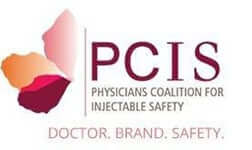Throat
Tonsillectomy / Sleep Apnea Surgery
Obstructive sleep apnea can be both irritating to a bed partner, but also dangerous to the person experiencing the apnea episodes. We always insist that our patients undergo a sleep study prior to recommending any surgery, but a tonsillectomy is one option for the treatment of this condition. Tonsils are glands found at the base of the throat, and when they become enlarged, they can contribute to blocked airways that lead to sleep apnea. Unfortunately, a tonsillectomy in adults can be extremely painful, requiring a recovery period of at least two weeks, so our post-operative instructions need to be carefully followed.
Sleep Apnea
Are people always complaining that you snore loudly or do you often feel tired in the morning even after sleeping the whole night? You could be suffering from a condition known as sleep apnea. Many people often do not know how potentially serious this condition could be. There are three types of sleep apnea; Obstructive sleep apnea, Central sleep apnea and Complex sleep apnea syndrome.
The only way to determine which type of sleep apnea you are suffering from and the best course of treatment is by visiting our offices for a checkup. Treating sleep apnea as early as possible can prevent complications such as heart problems among others.
Vocal Cord Paralysis
Vocal cord paralysis is a condition that can affect your ability to speak or even breathe. It is caused by the disruption or abnormal nerve impulses to the voice box or the larynx. The abnormal nerve impulses lead to the paralysis of the laryngeal muscles. The vocal cords do not only produce sounds, but also protect the airway by preventing saliva, food and drink from entering your trachea. Vocal cord paralysis can be caused by a number of factors such as viral infections, some types of cancer, or nerve damage in surgery.
We have treated patients through surgery, but you may recover through voice therapy as well. Come to our offices and get proper diagnosis and treatment.
Intra-Oral Sutures
Following ear, nose, and throat surgeries – as well as many facial plastic procedures – it is necessary for us to place sutures within the patient’s mouth. In order to avoid unnecessary infection, please follow our post-operative steps closely. Should you develop extraordinary pain, bleeding, or fever in the area of the sutures, contact our office immediately.






